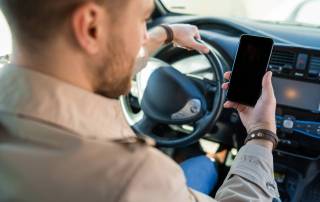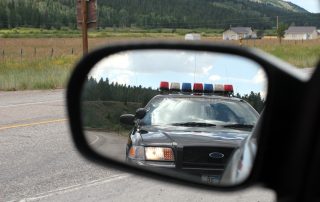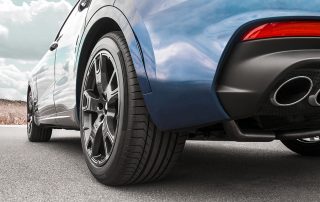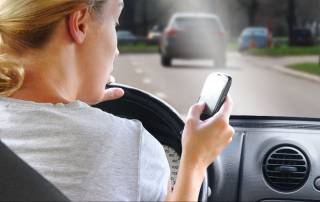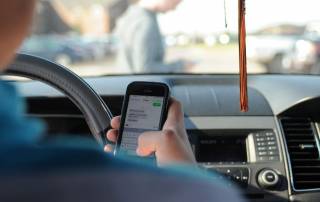The police may charge you with reckless driving if they think you’re putting your safety and other road users at risk. Reckless driving is a leading cause of accidents in the country and a serious traffic offense. A driver can be issued with a ticket even if there’s no wreck.
If you’ve been charged with reckless driving, you can contact a Long Island criminal justice attorney to help you fight the charges. They can investigate the case, create a strong defense, and provide legal representation for you in court.
What Are Some Examples of Reckless Driving?
Reckless driving is using a vehicle or driving unreasonably while interfering with the proper and free use of roads. The act endangers the life of the driver and others on the road. While this is a broad definition, here are specific examples of reckless driving:
Driving Under the Influence or While Intoxicated
According to the New York Vehicle and Traffic Law § 1192.3, drunk driving is one of the most severe forms of reckless driving. When charged with drunk driving, a Long Island reckless driving defense lawyer may attempt to reduce the charges to reckless driving.
However, the plea will still earn you a criminal conviction. Moreover, you may also be faced with reckless driving and driving while intoxicated charges.
Speeding
Speeding is one of the most common reasons drivers earn a traffic ticket in the United States. A driver can get ticketed for violating laws restricting the speed at which vehicles travel.
Generally, three types of laws related to speed restrictions exist:
- Drivers should drive at a speed that is reasonable under the circumstance
- Local governments and related regulatory authorities must establish maximum speed limits
- Specific maximum speed limits must exist for particular settings
Regardless of the speed limits defined by the law, any person who drives recklessly or at a speed that endangers the life or property of another person shall be guilty of reckless driving.
Other Forms of Reckless Driving
These traffic violations also amount to reckless driving
- Driving a vehicle without headlights at night
- Driving a car that isn’t under control, for example, one that has faulty breaks
- Passing on or at the crest of a grade or on a curve
- Driving while the view is obstructed
- Driving abreast in a single lane
- Passing at a railroad-grade crossing
- Parking in a fire lane
- Turning into the wrong lane
- Running a stop sign or red light
- Not giving proper signals on the road
When charged with the offense and taken to court, you need the help of a criminal justice lawyer in Long Island to defend you. They can argue your case to minimize the penalties for reckless driving. They can also provide legal counsel to ensure you’re aware of the risks and options while updating you on the case’s progress.
How Does the Prosecution Prove Reckless Driving in New York?
The burden of proof lies with the prosecutor to show that you’re guilty of the offense of reckless driving. Their task depends on the part of the statute of reckless driving you’ve been charged under.
For example, if you were charged with driving in a way that endangered the life or the property of others, the prosecution may use the record of the arresting officer and other witnesses to get you a conviction. The statements you made to the arresting officer and testimony regarding your misdemeanor at the time of the arrest can be used as evidence.
Regardless of your type of reckless driving, the prosecution must show beyond a reasonable doubt that you’re guilty of the offense. If the evidence the prosecution presents leaves room for interpretation, the jury might reduce or drop the charge. That would be based on the prosecution’s inability to fulfill its obligation to meet the required burden of proof.
What Are the Penalties for Reckless Driving in New York?
Reckless driving comes with severe consequences, which vary from state to state. In New York, the penalties can include the following:
- Fines: The fines for reckless driving increase with each subsequent offense. The first offense attracts a minimum fine of $100, while a third offense attracts a maximum fine of $1,125.
- Potential license suspension: One reckless driving charge and two red light tickets earn you 11 points; beyond that, you will suffer a license suspension by the Department of Motor Vehicles.
- Jail time: Reckless driving, more than other traffic offenses, is likely to include jail time. A first-time offense can earn you up to 30 days in jail, while a third offense can potentially see you spend up to six months in jail.
- Criminal record: Reckless driving can be charged as a misdemeanor or felony. It leaves you with a criminal record for the rest of your life. With a criminal record, it becomes hard to get into college, get a job, or access housing.
- Higher insurance premiums: When the offense is reported to your insurance company, you may have to pay higher vehicle insurance premiums. The increase can be as high as 76%.
These penalties can be tough on you, but a New York reckless driving defense lawyer can fight for you and defend your rights, future, and freedom.
What Are the Possible Defenses for Reckless Driving in NY?
You only earn a conviction for reckless driving if the prosecutor can prove that you were reckless about the consequences of your actions while operating a vehicle. In most cases, the requirement is higher than simply proving your negligence. For example, not stopping at a stop sign may not pass as negligence, but running a red light and speeding may be.
A reckless driving defense lawyer in Mineola, NY, can aggressively fight to show that your actions were not reckless. Then, you’d have a valid defense against the charge.
Legal Guidance from a Skilled Defense Attorney in New York
Reckless driving is a criminal offense that attracts hefty fines and, potentially, jail time. It’s in your best interest to engage an experienced reckless driving attorney in New York to build a solid defense and protect your rights.
Our law firm is ready to help you. While we can do our best to change the course of your life, you need to act fast so we can start a case assessment. Contact us today to schedule a FREE consultation with our team.





